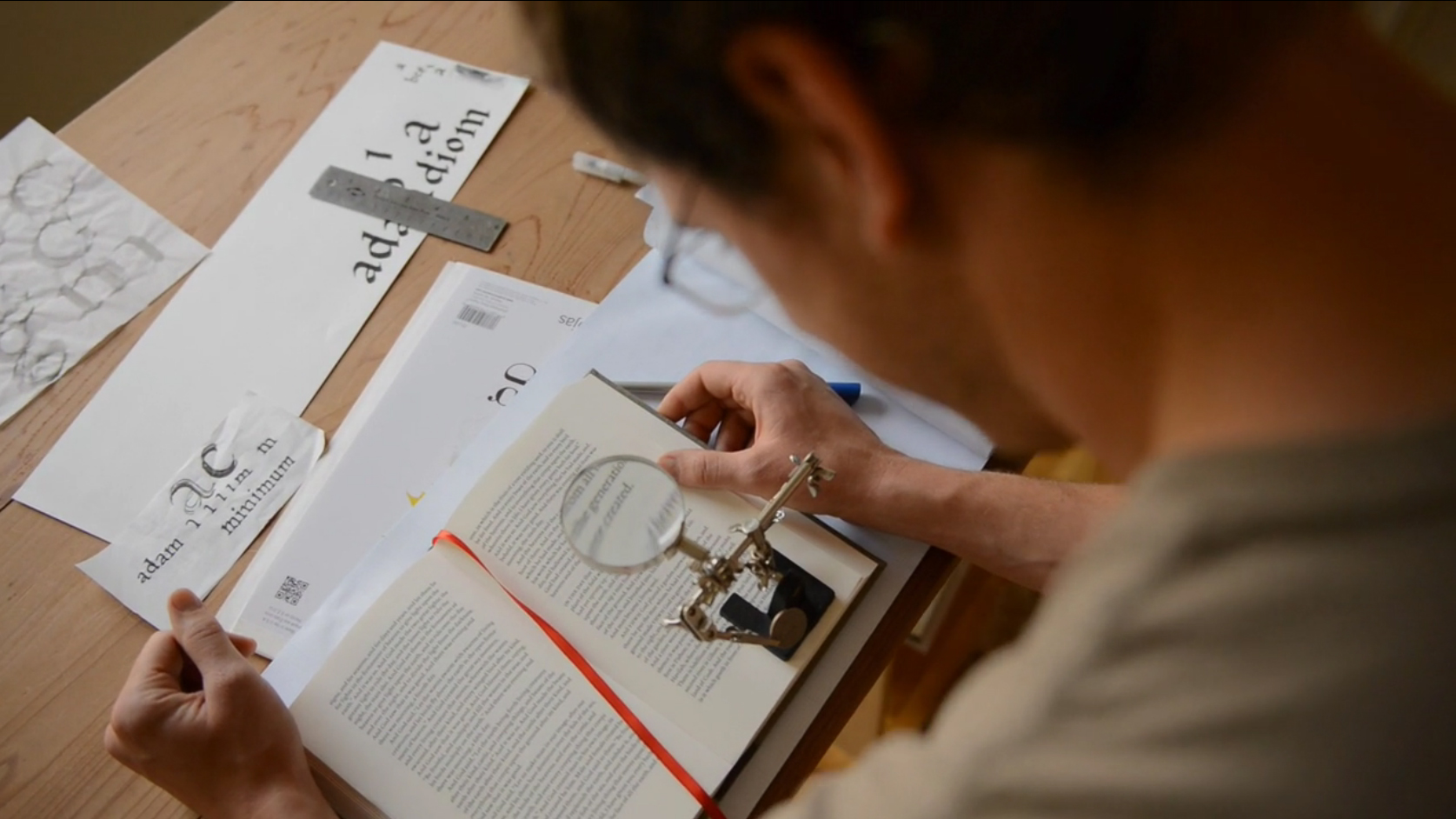If you watch Adam Lewis Greene's Kickstarter campaign page for more than a couple of seconds, you can see the number of pledges pop higher. With two days left, Greene's goal of raising $37,000 to print a Bible "designed and crafted for reading, separated into four elegant volumes, and free of all numbers and notes" has been met several times over.
In fact, it just surpassed $1 million.
Greene's project, named Bibliotheca, is a (mostly) American Standard Version Bible (with the "thees" and "thous" replaced). But what's catching attention is the layout. Unlike most Bibles printed since Gutenberg, Greene's version has one column, wide margins, a large typeface, and no notes or chapter marks.
The design choices are meant to enhance the reading experience, according to Mark Bertrand, author at the Bible Design Blog. Orders for Greene's project close on Sunday, July 27, almost a month after Crossway released a similar-looking English Standard Version (ESV) Reader's Bible. Like Bibliotheca, the Reader's Bible is meant to be read like a story, with one column and missing chapter and verse notations. Biblica, which publishes the New International Version, released a similar project, The Books of the Bible, in 2007 and 2011.
"Traditionally, reference Bibles look like dictionaries that you look things up in," Bertrand said. "Reader-friendly Bibles are more like novels. I think what is happening is that we're lamenting that people don't read their Bibles enough, and now we've realized the design of Bibles has an influence on that."
"Reader-friendly" Bibles have been tried before, but never caught on, he said. (The notable exception is Eugene Petersons' The Message, but Bertrand said the "translation and the perception that it was aimed at a non-traditional market may have dissuaded imitation.")
It may be that the age of short-form content, especially seen in social media's nurturing of mental distraction, has sparked a desire in readers for a clean, undistracted way to engage the Bible, said Dane Ortlund, senior vice president for Bible publishing at Crossway.
Crossway created the ESV Reader's Bible to get people to read more of their Bibles, and because decluttering can help readers get swept up into the narrative flow of Scripture, Ortlund said.
"Actually, though it's a new wave, it's really getting back to the way people originally wrote and read or heard the Bible," he said. "Verse and chapter numbers are only 500 years old."
Reading the Bible as a novel uses a different type of memory, said Bertrand, who has been reading his ESV Reader's Bible for several months. "I find myself engaging more with the ideas presented: 'Oh, this is the paragraph that talks about this,' rather than looking for a verse number. It's surprising to me, even though I've advocated for this kind of thing. I honestly didn't think it would make this big a difference. I find myself reading chapters at a time instead of verses at a time. Something as simple as taking out those numbers does give you a different experience."
Reading without tripping on chapter numbers or study notes can help people see the Bible in a new way, but a reader-friendly version probably shouldn't be the only Bible on your shelf, Ortlund said.
"At times, you'll be sitting and listening to a sermon and someone will say, 'Turn to chapter and verse such and such,'" he said. "That's going to be a little harder."
But while there is a presumption in favor of verse notations and cross-referencing, people are "discovering they don't need all that stuff as much as they thought they did," Bertrand said. "The kind of thing we'd need a big study Bible or reference Bible for is done through e-Bibles and phones now. People are more open to the idea that the printed book is for the deep reading experience."
(CT wrote about how Bible coders will change the way we think about Scripture.)
The wild success of Greene's Kickstarter project is a game-changer, Bertrand said.
"I guarantee if you took Adam's idea and pitched it to Bible publishers, they'd say that people will never pay for a multi-volume Bible without cross references," he said. "This has been the industry logic for a long time. … But there has been this enormous response, and while I can't speak for every publisher out there, the people I talk to are really scratching their heads over this. It's awakening them to the reality that there is a desire for more readable Bibles."
CT often covers different Bible translations, including the unexpected MVP of Bible translations, how a fight over including the word "Allah" led to trouble in Malaysia, and the top 10 most-shared Bible verses in 2013 (spoiler alert: John 3:16 didn't make the cut).








